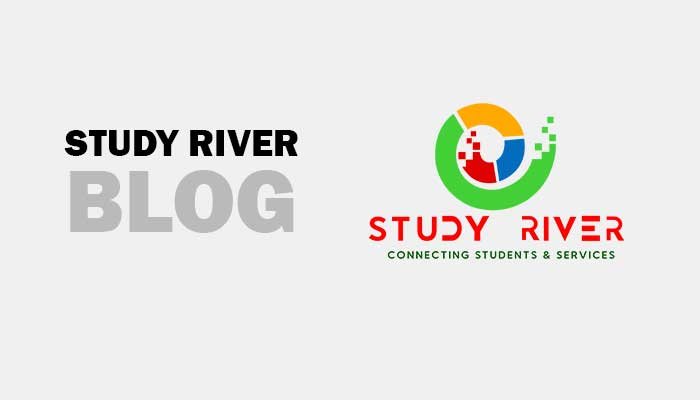
CSS 2022: MPT, Screening Test Syllabus | Unofficial
Total Marks: 200 | Maximum Time: 3 hours
Part-I English (25%) 50 Marks
Vocabulary, Grammar Usage, Comprehension (Correct usage of Tenses, Articles, Prepositions, Conjunctions, Punctuation, Phrasal Verbs, Synonyms, Antonyms, Sentence Structuring, Pair of Words, Comprehension etc.)
Part-II General Mental Abilities (15%) 30 Marks
Quantitative Ability/Reasoning to assess basic mathematical skills, understanding of concepts and ability to reason quantitatively and solve problems in a quantitative setting. It includes basic Arithmetic, Algebra and Geometry (Average, Ratios, Rates, Percent, Angles, Simple and Special Triangles, Sets, Remainders, Equations, Symbols, Rounding of Numbers) (SSC Level)
Logical Reasoning and Analytical Reasoning/Ability:
Logical Reasoning questions tests the ability to understand, analyze and evaluates arguments.
Example if by using a code the word “MADE” is written as “NBEF” the word “ROPE” will be coded as:
- SPQF
- TRQG
- SQRF
- OPQF
- SPRH
Analytical Reasoning/ Ability questions test the ability to understand a given structure of arbitrary relationships among persons, places, things or events and to deduce new information from the relationship given.
Example: which of the following words is different from the other three?
- Think
- Ponder
- Examine
- Activate
Part-III: General Knowledge (45%) 90 Marks
- Everyday Science (45%)
- Current Affairs (15%)
- Pakistan Affairs (15%)
GK-I (Everyday Science) (30 Marks)
- Introduction
- Brief History of Science with special reference to contribution of Muslims in the evolution and development of science.
- Reasons for the failure of Muslims in Science
- The Physical Sciences (30 marks)
- Constituents and Structure: Universe, Galaxy, Solar System, Sun and Earth
- Solar and Lunar Eclipses; weather forecast and weather variations; earthquakes, its possible reasons, forecast and precautions; Hurricanes.
- Sources of Energy; Energy Saving; Energy Consumptions and wastage of energy; Vegetable Oil as a fuel
- Ceramics, Plastics, Semiconductors, Nanomaterials, Chip Technology
- Radio, Television, Telephones, Wireless telecommunication; Camera, Laser, Microscope and Mobile Phones
- Computers, Satellites, ATM, MRI, Solar Cells
- Antibiotics, Bacteria, Virus, Vaccines, Fertilizers, Pesticides.
- Biological Sciences (30 marks)
- The basis of life: the cell, chromosomes, Genes, Nucleic acids
- The building blocks: Proteins, Hormones and other Nutrients
- Concepts of balanced diet and metabolism
- Survey of Plant and Animal Kingdom with reference to similarities and diversities in nature
- Natural products as a major source of drugs
- The Human Body: a brief account of human Physiology.
- Environmental Science (20 marks)
- Environment and Environmental pollution, Impact of pollution over Human life
- Major sources of pollution in Pakistan
- Polluted water a major cause of dieses
- Difference between nutrients and pollutants
SUGGESTED READINGS
- Exploring Life Science by Turber, Kilburn & Howell
- Exploring Physical Science by Turber, Kilburn & Howell
- Guide to Science by Isaac Asimov
- Science Restated by Cassidy
- Principles of Animal Biology by Khan, M. Rafiq
- Application of environmental chemistry by Eugene R. Weiner
- Biochemistry from a phenomenological point of view by Christa van Tellingen, M.D
GK-II (Current Affairs) (30 Marks)
Candidates will be expected to display such general knowledge of history, politics and international affairs, as deemed necessary to interpret current affairs.
- Domestic Affairs (20 marks)
- Political
- Economic
- Social
- Pakistan External Affairs (40 marks)
- Pakistan’s relations with its Neighbours
- Pakistan’s relations with the Muslim World
- Pakistan’s relations with the United States and the European Union
- Pakistan’s role in Regional and international Organizations
- Global Issues (40 Marks)
- International Security
- Technology
- International Political Economy
- Human Rights
- Environment
- Terrorism
- Nuclear Proliferation
SUGGESTED READINGS
- Pakistan Foreign Policy 1947-2005: A Concise History, 2011 by Abdul Sattar
- Issue in Pakistan’s Economy, 2010 by Akbar S.Zaidi
- Pakistan: A Hard Country, 2012 by Anatol Lieven
- Government & Politics in South Asia by Baxter, Malik Kennedy & Oberst.
- Introduction to International Political Economy, 2010 by David Balaam & Bradford Dillman
- The Politics of International Economic Relations, 2010 by Joan E.Spero & Jeffry A. Hurt
- Global Political Economy, 2011 by John Ravenhill
- International Relations, 2012 by Joshua Goldstein
- World Poliltics: Trends & Transformation, 2011 by Kegley & Blanton
- Pakistan Beyond the Crisis, 2011 by Maleeha Lodhi
- Globalization in Question, 2009 by Paul Hirst
- International Political Economy: Interests & Institutions in the Global Economy, 2010 by Thomas Oatly
- Politics and Change in the Middle East, 2012 by Anderson Seibert, and Wagner
GK-III (Pakistan Affairs) (30 Marks)
- Pakistan and Changing Regional Scenario
- The Rise of Taliban
- Pakistan and War on Terror
- Foreign Policy of Pakistan post 9/11
- The Current Security Environment in Pakistan
- Challenges to National Security of Pakistan
- Nuclear Program of Pakistan: its safety and security concerns
- The Army-led Regimes of Pakistan
- Economic Issues: Poverty Eradication, Unemployment, Inflation, Mega Projects, etc.
- Deficit Economy: A Case Study of Pakistan
- Issues in Pakistan’s Economic Development
- Indus Basin Treaty and related Issues
- Evolution of Democracy in Pakistan
- Evolution of Democratic Institutions in Pakistan
SUGGESTED READINGS
- Federalism and Ethnic Conflict Regulation in India and Pakistan. by Adeney, Katharine, 2007.
- Conflict Between India and Pakistan: an encyclopedia. by Lyon, Peter, 2008.
- Back to Pakistan: A Fifty Year Journey. by Mass, Leslie Noyes, 2011.
- Pakistan, America, and the Future of Global Jihad. by Riedel, Bruce, 2011
- The Future of Pakistan. by Cohen Stephen P. et al. 2011.
- Frontline Pakistan: The struggle with militant Islam. by Hussian, Zahind, 2007.
- Making Sense of Pakistan. by Shaikh, Farzana, 2009.
- A Brief History of Pakistan. by Wynbrandt, James, 2009.
- Modern South Asia: History, Culture, Political Economy by Jala, Aisha, 1995
- Judging the State: Courts and constitutional Politics in Pakistan. by Newberg, Paula R, 1995.
- Kashmir in Conflict: India, Pakistan and the Unending war. by Schofield, Victoria, 2003.
- Labor, Democratization and Development in India and Pakistan. by Candland, Christopher, 2007.
- Pakistan’s Quagmire: Security, Strategy, and the Future of Islamic-Nuclear Nation by N.Elahi, 2010
- Pakistan: The Garrison State by Ishtiaq Ahmed, 2013
- A Political History of Pakistan, 1947-2007 by Vyachelslav Y. Belokrenitsky & Vladimr N. Moskalenko, 2013
- Military Control in Pakistan: The Parallel State by Mazhar Aziz, 2008
- Perception, Politics and Security in South Asia: The compound crisis in 1990. by Chari, P.R. at al, 2003.
- Democracy and Authoritarianism in South Asia. by Jalal, Aisha, 1995.
- The Economy of Pakistan by Khawaja Amjad Saeed, 2010
- Indus Waters and Social Change by Saiyid Ali Naqvi, 2012
- The Unplanned Revolution: Observation on the process of Socio-economic change in Pakistan by Arif Hasan, 2012
- From Micro-finance to the Building of Local Institutions by Arif Hasan and Mansoor Raza, 2012
- The Evolution of Development Policy by Syed Nawab Haider Naqvi, 2010
- Human Development in South Asia by Mahbub ul Haq, 2011
- Pakistan Economic Survey by Ministry of Finance, Government of Pakistan
Part-IV Islamiat (15%) 30 Marks
- Deen-e-Islam
- The Concept of Deen.
- Difference between Deen & Religion.
- Importance and need of Deen in Human life.
- Distinctive features of Deen-e-Islam.
- The Impact of teachings of Islam & other religions in the light of historical facts.
- Fundamental Beliefs of Deen-e-Islam
- Greed of Tauheed (Unity of ALLAH)
- The Greed of Risalat
- The Greed of Akhirat (Resurrection Day)
- Ibadats (prayers) and Basic Pillars of Deen-e-Islam
- The obligation and importance of Namaz and its effects on social and individual life of men.
- The obligation and importance of Fasting: Fasting as a source of ‘self purification’ and ‘enhancement of personality’.
- The obligation and importance of Zakat: Zakat as a source of economic necessity and, distribution of wealth.
- The obligation and importance of Haj and its objectives and benefits.
- The obligation and importance of Jihad. Jihad as a source of custodian of Deen-e-Islam, Defense and self purification.
- The Basic Sources of Islamic Jurisprudence.
- Qurane-e-Majeed.
- Hadith & Sunnat: (Practice & Saying of Prophet PBUH).
- Consensus of Opinion or Ijma.
- Social System of Islam.
- Responsibilities and Pole of men (both men & women) in Social
- Rights of Parent.
- Rights of Spouse.
- Distinctive features of Islamic Social System
- Political System of Islam.
- Khalifat & Sharaiyat (Consultancy).
- Assurance of Adl & Justice.
- Reforms of Humanity.
- Important Institutions of State (Judiciary, Executive and Accountability Bureau)
- The Economic System of Islam
- Islam & Profession of Income: Boundaries of Permissible and Impermissible.
- Source of Income.
- Principles and Rules of Distribution of wealth.
- System of State’s Economy.
- Study of Noble life of Prophet (PBUH).
- Qualities and Characteristics of Holy Prophet (PBUH).
- Holy Prophet as a Role Model
- Position of Prophet as an Interpreter.
- Present Problems of Muslim Ummah and their Solution in the light of Prophet’s Noble life.
- Islam & Respect of Humanity.
- Ethics.
- Moral teachings of Quran and Sunnah
- Professional Ethics according to Islam
SUGGESTED READINGS
- Introduction of Islam by Dr. Hamidullah
- Islam the Religion by Syed Anwar Ali
- The Religion of Islam by Ahmad A Galwash
- Outlines of Islamic Culture by A. M. A Shushtery
- An Introduction of Islamic Law by J. Schacht
- The Early Development of Islamic Jurisprudence by Dr. M. Yousuf Farooqi
- Islamic Economics by M. A. Mannan
- Towards Understanding Islam by Abul A’ ala Modoodi Translation: Prof. Khurshid Ahmad
- Economics of Islam by S. M. Ahmad
- The Formative Period of Islamic Thought by W. W. Wah
Note: The non-Muslim candidates if not attempt part-IV (Islamiat), their marks in Pakistan Affairs (Part-III (c)) shall be counted in lieu of Islamiat. Thus, their marks in Pakistan Affairs shall be doubled for their merit order.
